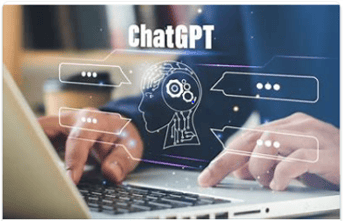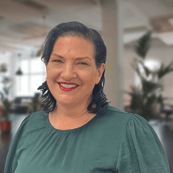Artificial Intelligence is currently a topical conversation, with many holding strong viewpoints on how it will impact future tasks and roles.
What some of us may have understood as “Science Fiction” as children are now using some of these technologies as part of daily life today. Yes, I am that old that the concept of a phone not being hard wired into a wall was hard to conceive, and the thought of seeing an image whilst talking was pure futurist fantasy! Artificial Intelligence has been evolving for many years, quietly gaining momentum since the early 1940s. The question is: How will it affect how mobility and seating are identified and justified in the future? This is the current foundation of discussion across multiple industries and roles. With ChatGPT we have seen an explosion of discussion and hypothesis on both the benefits and concerns.

I have noted on several platforms some robust discussions on the use of AI to assist in daily work tasks. I along with many of you have typed something into ChatGPT type engines to see what kind of response is provided; I actually asked it to write several blogs and overall was impressed with some of the general responses!
A blog post is “any article, guide, or news piece that is published on a website with the intent to cover a certain topic or answer a specific query” according to BloggingTips.com. By this definition I think the AI program I experimented with did cover certain topics and answered a question, because this is what I requested it to do. “Write me a blog on…” was the format I entered and provided several different queries. It also produced a blog that followed the basic format recommendations found online: Introduction, body and conclusion (to the extent that with every query I submitted I was rewarded with the final paragraph stating “… In conclusion…”). The language was very Americanised which isn’t surprising when we know these algorithms search and pull information from what is available on the internet – I’m sure even from a population standpoint America will have a significantly higher amount of data than Australia and New Zealand. Examples of language included Physical Therapist rather than Physiotherapist and Pressure sore rather than pressure injury.

The content is also presented as fact but with no references to where the information was obtained, or the quality of the information included. I found on a simplistic level it was providing quite basic and generic information. I also found that how the question was phrased also impacted the content, such as asking “please give reasons why…” vs “please give reasons why not…”. When I phrased these questions, I ended up getting both viewpoints as factual responses so essentially two different answers based on how I asked the same question.
An educational or informational blog is one thing but when it comes to report writing, we are essentially articulating the clinical reasoning process relating to an individual user. How AI can be utilised within this process is still unclear, but what is clearer is that AI is here and we need to seriously consider how it can assist, and potentially harm, the clinical reasoning process. If this has sparked your interest, I invite you to join me for a session at the Oceania Seating Symposium in Melbourne later this year. I will be facilitating a session on AI and the future of prescription, and we will as a group work through some of the things we need to start considering now that will impact on our profession tomorrow. The draft program for this year’s OSS is now on their website and its looking fantastic! Some great international speakers will be presenting that I’m looking forward to hearing. Our Clinical team from Permobil will be on site both facilitating sessions, attending workshops and will also be available on the Permobil expo stand for any specific enquires and discussions. Hope to see you there! Welcome - Oceania Seating Symposium
Remember, we are always here to support you. If you have any funding questions or need support please email us at:
Australia: Education.AU@permobil.com
New Zealand: Education.NZ@permobil.com
Other Countries: Education.APAC@permobil.com
Author

Tracee-Lee Maginity BHSc (OT)
Clinical Services Specialist
Tracee-Lee Maginnity joined Permobil Australia in July 2019, as a clinical education specialist. Originally from New Zealand, she graduated Auckland University of Technology with a BHSc (Occupational Therapy) in 2003 and has since worked in various roles related to seating and mobility including assessing, prescribing and educating. After gaining experience as an assessor and prescriber at Seating To Go / Wheelchair Solutions in prescribing for both disability and injury, she moved to Australia in 2011 to take on the Senior Occupational Therapist role in a custom moulded seating service. She then worked in clinical consulting and education roles until joining Permobil. Tracee-Lee is passionate about maximising functional outcomes with end users and the importance of education within the industry. She has mentored many therapists interested in AT. Her experience includes working with complex postures to achieve custom outcomes. Tracee-Lee is also an international wheelchair rugby classifier where she enjoys the task analysis of wheelchair propulsion and functional capacity identification of athletes.
.png)
